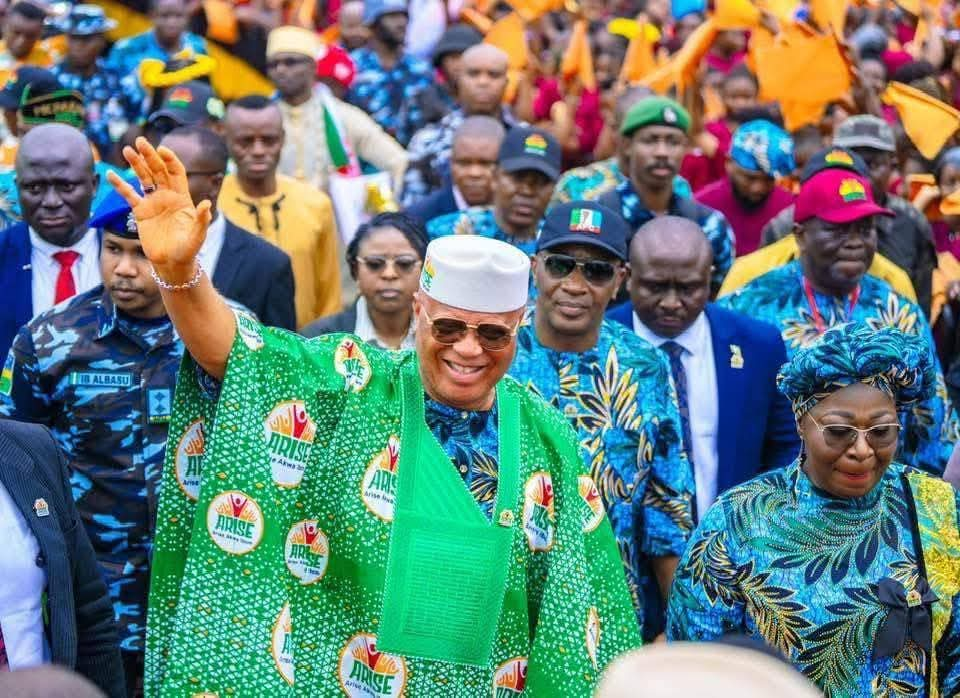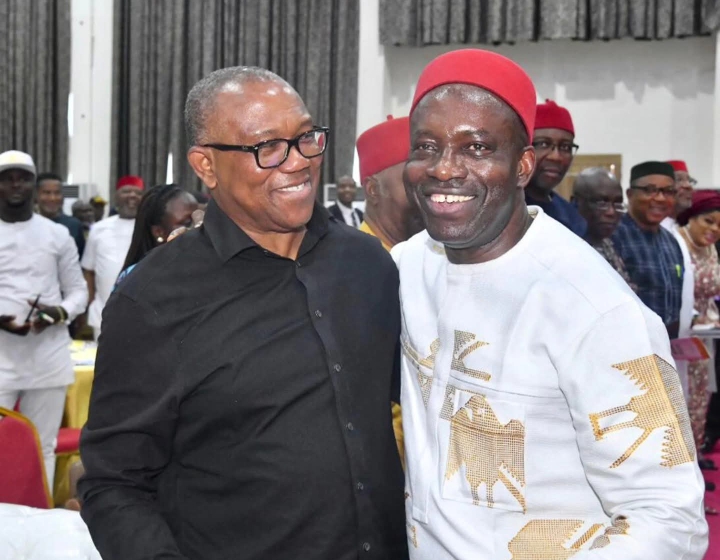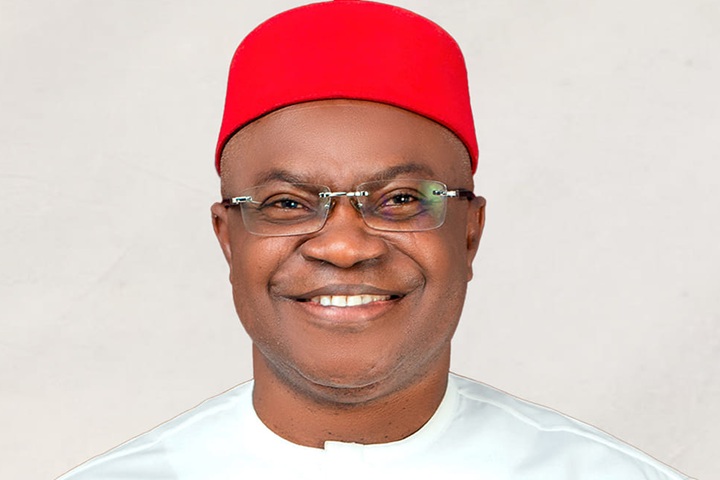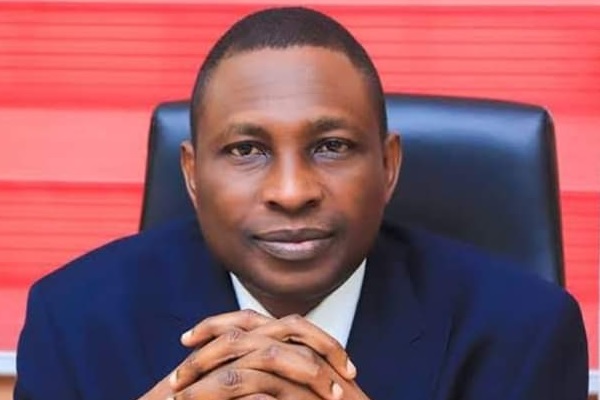Economy
Sani Abacha – the hunt for the billions stolen by Nigeria’s ex-leader
When Nigeria’s then-head of state Sani Abacha stole billions of dollars and died before spending his loot, it prompted an international treasure hunt spread over decades. The man hired to get the money back tells the BBC’s Clare Spencer how the search took over his life.
In September 1999, Swiss lawyer Enrico Monfrini answered a phone call that would change his next 20 years.
“He called me in the middle of the night, he asked me if I could come to his hotel, he had something of importance. I said: ‘It’s a bit late but OK.'”
The voice on the end of the line was that of a high-ranking member of the Nigerian government.
‘Can you find the money?’
Mr Monfrini says the official was sent to Geneva by the Nigerian president at the time, Olusegun Obasanjo, to recruit him to get hold of the money stolen by Abacha, who ruled from 1993 until his death in 1998.
As a lawyer, Mr Monfrini had built up a Nigerian client base since the 1980s, working in coffee, cocoa and other commodities.
He suspects those clients recommended him.
“He asked me: ‘Can you find the money and can you block the money? Can you arrange that this money be returned to Nigeria?’
“I said: ‘Yes.’ But in fact I didn’t know much about the work at that time. And I had to learn very quickly, so I did.”
To get started, the Nigerian police handed him the details of a few closed Swiss bank accounts, which appeared to be holding some of the money Abacha and his associates had stolen, Mr Monfrini wrote in the book Recovering Stolen Assets.
He said that a preliminary investigation published by the police in November 1998 found that more than $1.5bn (£1.1bn) was stolen by Abacha and his associates.
‘Dollars by the truckload’
One of the methods used for accumulating such a colossal sum was particularly brazen.
Abacha would tell an adviser to make a request to him for money for a vague security issue.
He then signed off the request which the adviser would then take to the central bank, which would hand out the money, often in cash.
The adviser would then take most of that money to Abacha’s house.
Some was even taken in dollar notes “by the truckload”, Mr Monfrini wrote.
This was just one way Abacha and his associates stole huge amounts of money. Other methods ranged from awarding state contracts to friends at highly inflated prices and then pocketing the difference and demanding foreign companies pay huge kickbacks to operate in the country.
This went on for around three years until everything changed when Abacha died suddenly, aged 54, on 8 June 1998.
It is unclear whether he had had a heart attack or was poisoned because there was no post-mortem, his personal doctor told the BBC.
Abacha died before spending the stolen billions and a few bank details served as clues as to where that money was stashed.
“The documents showing the history of the accounts gave me a few links to other accounts,” said Mr Monfrini.
Armed with this information he took the issue to the Swiss attorney general.
And then came a breakthrough.
Mr Monfrini successfully argued that the Abacha family and their associates formed a criminal organisation.
This was key because it opened up more options for how the authorities could deal with their bank accounts.
The attorney general issued a general alert to all the banks in Switzerland demanding that they disclose the existence of any accounts opened under the Abachas’ names and aliases.
“In 48 hours, 95% of the banks and other financial institutions declared what they had which seemed to belong to the family.”
This would uncover a web of bank accounts all over the world.
“Banks would deliver documents to the prosecutor in Geneva and I would do the job of the prosecutor because he didn’t have time to do it,” Mr Monfrini told the BBC.
‘Bank accounts talk a lot’
“We would find out on each account exactly where the money came from and/or where the money went to.
“Showing the ins and outs on these bank accounts gave me further information regarding other payments received from other countries and sent to other countries.
“So it was like a snowball. It started with a few accounts, and then a large amount of accounts, which in turn created a snowball effect indicating a huge international operation.
“Bank accounts and the documents that go with them talk a lot.
“We had so much proof of different money being sent here and there, Bahamas, Nassau, Cayman Islands – you name it.”
The size of the Abacha network meant a huge effort for Mr Monfrini.
“Nobody seems to understand how much work it entails. I have to pay so many people, so many accountants, so many other lawyers in different countries.”
Mr Monfrini had agreed a commission of 4% on the money sent back to Nigeria. A rate he insists was comparably “very cheap”.
Finding the money turned out to be relatively quick in comparison to getting it returned to Nigeria.
“The Abachas were fighting like dogs. They were appealing about everything we did. This delayed the process for a very long time.”
Further delays came as Swiss politicians argued over whether the money would just be stolen again if it was returned.
Some money was returned from Switzerland after five years.
Mr Monfrini wrote in 2008 that $508m found in the Abacha family’s many Swiss bank accounts was sent from Switzerland to Nigeria between 2005 and 2007.
By 2018, the amount Switzerland had returned to Nigeria had reached more than $1bn.
Other countries were slower to return the cash.
“Liechtenstein, for instance, was a catastrophe. It was a nightmare.”
In June 2014, Liechtenstein did eventually send Nigeria $277m.
Six years later, in May 2020, $308m held in accounts based in the Channel Island of Jersey was also returned to Nigeria. This only came after the Nigerian authorities agreed that the money would be used, specifically, to help finance the construction of the Second Niger Bridge, the Lagos-Ibadan expressway and the Abuja-Kano road.
Some countries are yet to return the loot.
Mr Monfrini is still expecting $30m he says is sitting in the UK to be returned, along with $144m in France and a further $18m in Jersey.
That should be it, “but you never know”, he says.
In total, he says his work secured the restitution of just more than $2.4bn.
“At the beginning people said Abacha stole at least $4-$5bn. I don’t believe it was the case. I believe we more or less took the most, took a very large chunk, of what they had.”
He has heard rumours that the Abacha family are not so wealthy any more.
Or, as he puts it: “They are not swimming in money like they used to do in the past.”
When he looks back, he seems satisfied with his work.
“When I speak to my very many children about this case, I tell them I found money and I blocked the money, I persuaded the authorities to go after these people and get the money back to the country for the good of the Nigerian people.
“We did the job.
Economy
Fidelity Bank Resumes International Transactions on Naira Debit Cards
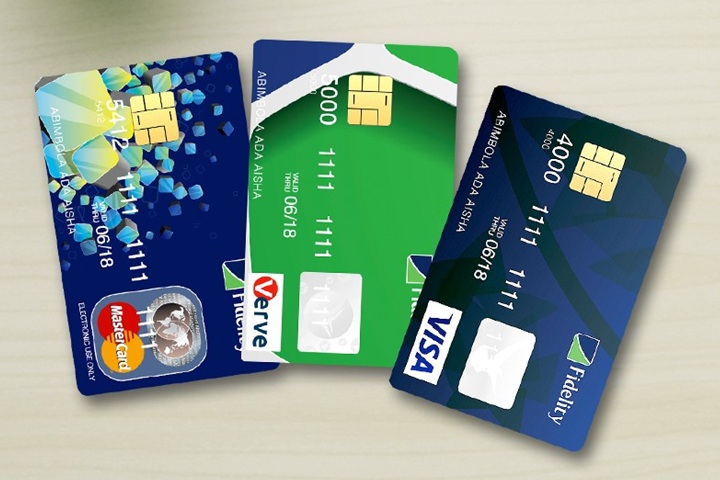
Tier-one Lender, Fidelity Bank Plc., has announced the resumption of international transactions on its Naira Debit Cards.
This recommencement gives customers the freedom to make seamless payments abroad, online, and at ATMs outside the country.
The Divisional Head of eBanking, Fidelity Bank, Ifeoma Onibuje, shed light on the development.
Onibuje said: “We are delighted to inform the public that Fidelity Naira Cards are now enabled for global use.
“This means that our travelling customers can now utilize their Naira Debit cards outside the country to shop, spend and withdraw internationally without hassles.”
“Consequently, our customers can now spend up to $1,000 quarterly for international POS and online transactions; and withdraw up to $500 quarterly on international ATMs.”
The announcement offers Fidelity Bank customers another way to complete international transactions, in addition to the Bank’s existing foreign currency debit and credit cards.
The bank stated that it further reinforces its commitment to delivering solutions that fit seamlessly into customers’ lifestyles.
With Fidelity Bank’s VISA and Mastercard Naira Debit Cards, Nigerians can now enjoy effortless global access.
Beyond payments, Fidelity VISA cardholders, one of the variants of the bank’s card offerings, also enjoy premium travel and lifestyle benefits.
The benefits range from airport lounge and spa access via the Visa Airport Companion App, to fast-track immigration lanes and 20% discounts on SIXT car rentals worldwide.
This move, the bank said, also reflects its commitment to provide secure, convenient, and reliable banking services that empower customers in Nigeria and beyond.
The bank noted that it has deliberately made the process of getting a Fidelity Naira card seamless.
It stressed that customers can easily apply for their Fidelity VISA or Mastercard Naira Debit card via the Fidelity Mobile App or simply visit the nearest Fidelity bank branch to request for one and they can start transacting globally with ease.
Ranked among the best banks in Nigeria, Fidelity Bank Plc is a full-fledged Commercial Deposit Money Bank serving over 9.1 million customers through digital banking channels, its 255 business offices in Nigeria and United Kingdom subsidiary, FidBank UK Limited.
The Bank is the recipient of multiple local and international Awards, including the 2024 Excellence in Digital Transformation & MSME Banking Award by BusinessDay Banks and Financial Institutions (BAFI) Awards; the 2024 Most Innovative Mobile Banking Application award for its Fidelity Mobile App by Global Business Outlook, and the 2024 Most Innovative Investment Banking Service Provider award by Global Brands Magazine.
Additionally, the Bank was recognized as the Best Bank for SMEs in Nigeria by the Euromoney Awards for Excellence and as the Export Financing Bank of the Year by the BusinessDay Banks and Financial Institutions (BAFI) Awards.
Celebrity/Entertainment
How Nigerian TikToker Geh Geh Made ₦45 Million in One Night

A Nigerian TikTok sensation known as “Geh Geh” has stunned the internet after pulling in over $30,000 from a single live session that attracted more than 177,000 viewers.
The young entertainer, who calls his platform the “University of Wisdom and Understanding,” has quickly built a cult following with his raw and unfiltered lectures about women, money, and survival in Nigeria.
During the live broadcast on Thursday, August 21, viewers showered him with virtual gifts that he later calculated to be worth over $30,000.
The milestone instantly pushed him into the spotlight as one of Nigeria’s fastest-rising online personalities.
Reacting in disbelief after the stream, Geh Geh said:
“More than 177,000 people watch my lectures today. Jesus! University of wisdom and understanding, the only university where once you graduate, woman go fear to ask you for money.”
Despite not having a formal education, Geh Geh proudly calls himself “the first illiterate to find a university in the history of Nigeria.” In a video after the viral live, he reminded fans of his humble background:
“I no be graduate too, but by the grace of God, I don find school. I be orphan, but now Nigerians don show me love.”
The TikTok star admitted he was overwhelmed by the generosity of his supporters.
“See gift I made over… more gift when they give me today is worth about $30,000. I no go take this love for granted, because I no really do anything for am.”
His rise has been hailed as proof of how social media is transforming lives in Nigeria. With no degree, no rich background, and no industry connection, Geh Geh has managed to build a fanbase that now calls themselves “students” of his unusual university.
Still, his controversial views on women and relationships continue to spark heated debates. While some dismiss his advice as reckless, others insist his boldness speaks directly to Nigeria’s frustrated youth.
Reflecting on his sudden fame, Geh Geh compared himself to great thinkers:
“If Nigeria be country wey value great people, by now them suppose dey compare people like me with Aristotle, Wole Soyinka, Einstein… but I thank God say people dey see my head and my own difference.”
From an orphan with no prospects to a viral star earning in dollars, Geh Geh’s story has become one of digital empowerment.
His journey shows how platforms like TikTok are creating new forms of fame, money, and influence for Nigerians especially those once written off by society.
Africa
UK Dominates Nigeria’s Q1 2025 Capital Inflows With N5.5tn — NBS

The United Kingdom has once again cemented its position as Nigeria’s leading source of foreign capital, accounting for more than N5.5 trillion in inflows during the first quarter of 2025, according to the latest data from the National Bureau of Statistics (NBS).
Figures from the Capital Importation Report show that capital from the UK rose to $3.68bn (N5.52tn) in Q1 2025, representing 65.26% of Nigeria’s total $5.64bn inflows for the quarter.
This marked a 29.2% rise from the $2.85bn recorded in Q4 2024 and more than double the $1.81bn inflows seen in Q1 2024.
This underscores Britain’s dominance in Nigeria’s external financing profile and highlights the strong bilateral financial ties between both nations.
Breakdown of Q1 2025 Capital Inflows by Country
United Kingdom: $3.68bn (65.26%)
South Africa: $501.29m (8.88%)
Mauritius: $394.51m (6.99%)
United States: $368.92m (6.54%)
United Arab Emirates: $301.72m (5.35%)
Together, these top five countries accounted for over 92% of Nigeria’s capital inflows, reflecting both the concentration of Nigeria’s foreign investments and the risks of over-dependence on limited markets.
Other contributors included:
Cayman Islands: $114.76m (up sharply from $0.64m in Q4 2024)
Belgium: $70.54m
France: $47.33m
Netherlands: $42.68m (down significantly from $425.61m in Q4 2024)
Singapore: $36.79m
Overall, capital importation into Nigeria stood at $5.64bn in Q1 2025, up 10.9% from Q4 2024’s $5.09bn, and a remarkable 67.1% higher than the $3.38bn recorded in Q1 2024.
The NBS noted:
“Capital Importation during the reference period originated largely from the United Kingdom with $3,681.96m, showing 65.26 per cent of the total capital imported.”
A separate survey by Strategy Management Partners (UK) reveals that British companies are increasingly targeting Africa as a strategic growth frontier.
50% of UK firms with annual turnover above £20m are already operational in Africa and planning expansions.
Another 28% of executives said they are interested but remain cautious about entry strategies.
Africa’s appeal lies in its resource wealth and demographic potential:
30% of the world’s mineral reserves
8% of natural gas reserves
12% of oil reserves
65% of the world’s arable land
Projected to host 25% of the global workforce by 2035
Seven key sectors remain magnets for foreign capital inflows into Nigeria and Africa at large:
1. Technology
2. Oil & Gas
3. Power and Renewable Energy
4. Agriculture
5. Manufacturing
6. Infrastructure
7. Strategic Minerals
Analysts warn that while Nigeria’s reliance on UK-driven inflows reflects strong global confidence, the concentration of sources exposes the economy to external shocks if investor sentiment shifts in these countries.
Diversification of investment partnerships particularly within Asi
a, the Americas, and intra-African trade will be crucial to ensuring long-term resilience in capital inflows.
Africa
U.S. Govt Reacts to Nigerian Minimum Wage

The United States government has said that Nigeria’s new N70,000 minimum wage has lost real value due to the sharp fall of the naira, leaving millions of workers trapped in poverty.
According to the 2024 Country Reports on Human Rights Practices, released by the U.S. Department of State’s Bureau of Democracy, Human Rights, and Labour, the wage translates to just $47.90 per month.
The report noted that currency devaluation and weak enforcement have undermined the wage increase.
The report also revealed that many states are yet to implement the new wage law. Several governors cited financial challenges as the main excuse.
Even where the law exists, compliance remains poor because of limited labor inspectors and weak oversight from authorities.
Wage Devaluation and Exclusion
The report highlighted that firms with fewer than 25 workers are excluded from the minimum wage law, leaving millions of employees without protection.
This also explained that about 70 to 80 percent of Nigeria’s workforce operates in the informal sector, where wage and labor rights are almost never enforced.
This means a majority of Nigerians continue to earn far below the national benchmark, despite the government’s approval of N70,000 as the new minimum wage.
The U.S. report stressed that the naira’s sharp decline, trading above N1,500 to the dollar, had worsened the wage erosion. This has left workers unable to afford basic needs, pushing many deeper into poverty.
Human Rights and Labor Challenges
The document pointed out that weak enforcement of labor laws contributes to worsening poverty levels in the country.
Workers in the informal sector, such as street vendors, artisans, and small traders, rarely benefit from labor protections.
The report also noted that Nigeria’s minimum wage is rarely sufficient to cover basic food, housing, and transport needs.
This has further exposed structural gaps in the government’s approach to economic reforms and poverty reduction.
Governors Push Investment Platform
Meanwhile, the Nigeria Governors’ Forum (NGF) has launched a new investment initiative called NGF Investopedia.
The platform seeks to attract capital flows into bankable projects across all 36 states, with the goal of tackling Nigeria’s annual $100 billion infrastructure financing deficit.
The launch event in Abuja gathered governors, international partners, and investors. The forum described the platform as a long-term strategy to unlock growth opportunities across states and strengthen Nigeria’s subnational economies.
NGF Chairman and Kwara State Governor, Abdulrahman AbdulRazaq, said Nigeria must urgently leverage its human and natural resources to address poverty and joblessness.
“Here is Africa’s largest economy, endowed with abundant human and natural resources,” he said, stressing that state governments must play a bigger role in attracting investments and supporting local industries.
A Widening Gap
The contrast between the U.S. report on wage decline and the governors’ push for investment highlights Nigeria’s economic paradox.
While authorities promote foreign capital inflow, millions of workers continue to survive on wages that have lost most of their value.
With inflation rising, food prices soaring, and the naira weakening, the gap between earnings and cost of living keeps widening.
Unless enforcement improves and the informal sector is integrated into wage protections, the N70,000 benchmark may remain symbolic rather than effective.
Economy
Global Card: Fidelity Bank Hits Milestone As Fidelity Naira Card Accepted Globally

Fidelity Bank may have hit another milestone the Fidelity Naira Card is now accepted globally.
This was disclosed in a message sent to Diaspora Digital Media (DDM) via email on Monday.
According to the statement entitled “Your Fidelity Naira Card Now Works Globally; Shop, Pay and Withdraw with Ease!“, customers can buy favourite global brands online using their Fidelity Naira Card.
The band also stated that they can equally pay at POS terminals abroad and make cash withdrawals at ATMs as they travel.
The message reads:
“We’re excited to let you know that your Fidelity Naira Card is now enabled for global use — so you can shop, spend and withdraw internationally with confidence.
“Here’s what you now enjoy every quarter:
|
Channel |
Transaction Limit |
| ATM Withdrawal abroad | $500 |
| Online/Web & POS Payments | $ 1,000 |
“What does this mean for you?
- Shop your favourite global brands online
- Pay at POS terminals abroad with ease
- Withdraw cash at ATMs when you travel.”
The statement, however, noted that the $1,000 quarterly limit applies to all international transactions combined, including ATM withdrawals, online purchases, and POS payments.
The bank urged customers who may need assistance with setting card limits or activating their cards for global use, to contact the bank’s customers care “Centre Trueserve”, which is available round the clock, whether in Nigeria, or outside the country.
“Your world, your card — spend smart, spend globally with Fidelity,” the message concludes.
-

 Celebrity/Entertainment2 days ago
Celebrity/Entertainment2 days agoHow Nigerian TikToker Geh Geh Made ₦45 Million in One Night
-
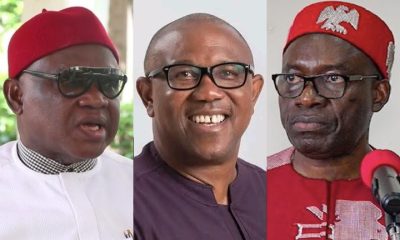
 Featured5 days ago
Featured5 days agoYour Attacks on Peter Obi Are Petty, Stop It! Chekwas Rebukes Soludo
-
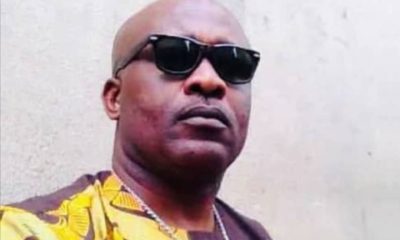
 News5 days ago
News5 days agoTension in Anambra community as senior police officer shoots kinsman dead
Colleagues, others try cover-up; victim's family fights back
-

 News6 days ago
News6 days agoNigerian visa applicants must provide 5-yr social media history — US embassy
-

 News4 days ago
News4 days agoTerrorist Organisation: APC, PDP Members in US, UK, France Risk Deportation
-

 Analysis7 days ago
Analysis7 days agoSystemic Sabotage: How APC, INEC Colluded To Undermine Amamgbo’s Senatorial Bid
By Arthur Ezechukwu
-

 Celebrity/Entertainment6 days ago
Celebrity/Entertainment6 days agoWhy single mothers can’t raise boys into proper men — Jim Iyke
-

 News3 days ago
News3 days agoVandal electrocuted while vandalizing Aba power infrastructure
-

 News2 days ago
News2 days agoPeter Obi’s Son Breaks Silence Over His Viral Photos Nigerians Are Talking About
-

 News3 days ago
News3 days ago15% of Nigerian girls aged 15–19 are mothers or pregnant — FG



